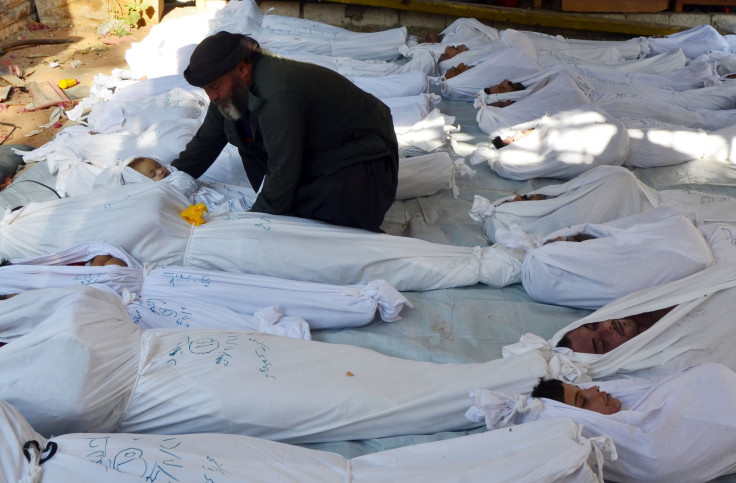Cyprus Buildup May Point To Attack On Syria

Warplanes and military transports have begun arriving at Britain's Akrotiri airbase on Cyprus, less than 100 miles from the Syrian coast, in a sign of hastening preparations for a possible military strike against Syria, The Guardian reported Monday.
Two commercial pilots who regularly fly from Larnaca, Cyprus, told the Guardian that they had seen C-130 transport planes from their cockpit windows as well as small formations of fighter jets on their radar screens, which they believe had flown from Europe.
The Greek Cypriot government in Nicosia said Monday it had no official information about the possibility of British bases in Cyprus being used for military action against Syria in response to alleged poison gas attacks by President Bashar al-Assad’s regime, China’s official Xinhua agency reported.
"The government has neither been officially advised nor has any other information about the prospect of the British bases on Cyprus being used by Britain and the United States," Defense Minister Fotis Fotiou said.
The London Sunday Times and the Daily Telegraph have reported that British and American military officials were working on plans to use the British Royal Air Force base at Akrotiri, near Limassol on the south shores of Cyprus, for attacks on selected Syrian government targets.
Britain retained two sites in Cyprus totaling 156 square kilometers when it granted the island independence in 1960 following a colonial war. Britain claims sovereign rights over the bases. The Cypriot government objects, as a matter of general policy, to the British bases being used against neighboring countries, but Britain claims that such use complies with international treaties that allow military action which serves its defense interests.
The most important of these bases is the RAF base at Akrotiri, which is currently used to provide logistic support for NATO forces in Afghanistan and also hosts extensive eavesdropping electronic installations. It was most recently used by British Tornados taking off for action against Moammar Gadhafi's forces in Libya in 2011.
Meanwhile, Russia said Monday it hoped a "war of civilizations" in Syria could be avoided, although Western powers had been moving along that path.
"I was greatly alarmed by the statements made from Paris and London that NATO may intervene to destroy chemical weapons in Syria without the consent of the U.N. Security Council. It's a very dangerous and slippery path," Foreign Minister Sergei Lavrov told reporters in Moscow.
He said the use of force without the Security Council's sanction would be a major violation of international law.
"Even if we leave the legal, moral and ethical aspects aside, specific consequences of external interference not authorized by the international community would only sharply exacerbate the situation in the country," Lavrov said.
Meanwhile, Russia would not start military confrontation with anyone over Syria, he added.
"We expect our Western partners to draft their policy not reactively but strategically," he said.
Lavrov described the deployment of Western naval vessels off Syrian shores as "a grave blunder" and compared the Western intimidation of Syria with the way the West started its intervention in Iraq 10 years ago.
Lavrov said foreign intervention would not lead to peace but to a new round of the civil war in Syria and he accused "certain forces" of deliberately undermining peaceful efforts.
"The moment we see a glimmer of hope appear, someone who wishes to prevent the situation from returning to the right track pops up," he said.
© Copyright IBTimes 2024. All rights reserved.




















